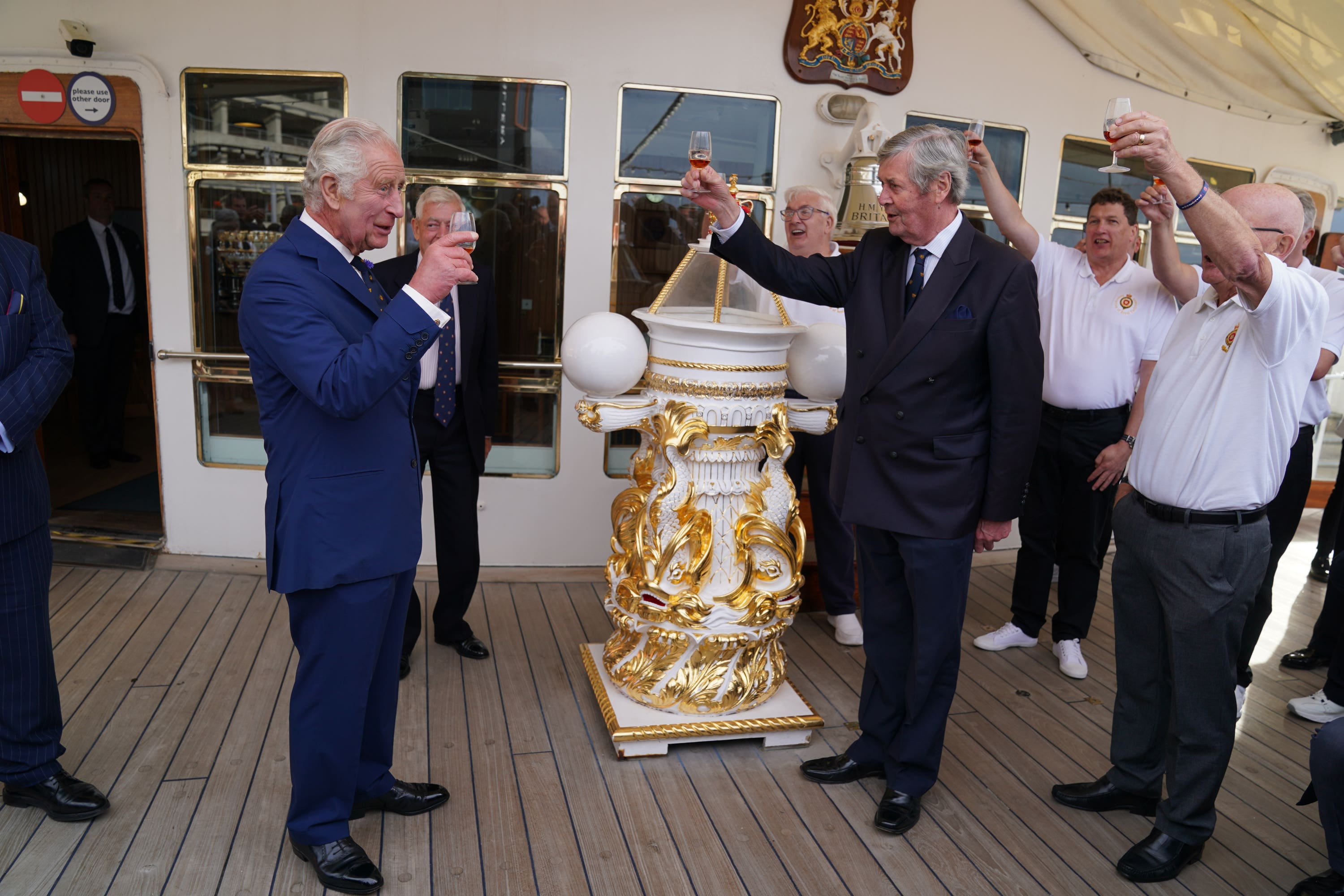King enjoys tot of rum with former Royal Yacht Britannia sailors
Sailors in the Royal Navy were issued with a daily ration of rum until 1970.

The King joined former Royal Yacht Britannia sailors in reviving an old navy tradition – and drank a tot of rum.
Charles returned to the vessel the royal family called home at its dock in Leith in Scotland and reminisced with the men who kept things ship shape above and below deck before it was decommissioned in 1997.
Standing on deck for the first time in more than 25 years, the King was toasted by the old sailors and returned the tribute, saying: “To all the marvellous Yachties who keep it all going, you are all brilliant.”
Sailors in the Royal Navy were issued with a daily ration of rum until 1970 when the practice came to an end, and the late Queen was the only person able to continue the alcoholic treat for Britannia’s seamen on special occasions with the words “splice the mainbrace”.
A laugh went up before procedures began when someone dropped a glass, and after taking a sip of the drink – traditionally three measures – Charles puffed out his cheeks as the Pusser’s Rum – labelled gun powder proof – went down.
The Association of Royal Yachtsman, formerly known as the Royal Yacht Britannia Association, is drawn from the men who worked on the royal ship during its 43 years at sea, and every year many return for a few days to give staff who maintain Britannia as a visitor attraction a helping hand.
Mark Carron, 49, served on Britannia from 1994-98 doing a variety of tasks to keep the ship running smoothly and later became a policeman in his home county of Kent before taking early retirement.
He said after chatting to the King: “He said ‘I’ve always loved the smell of rum, it’s a unique smell’.”
Mr Carron added: “This was the place out of the public eye, they could relax and be themselves. On board Britannia that was their family time and it was our job to make their stay comfortable.”
Charles joined the Royal Navy some years after the end of free tots of rum and his career concluded with him commanding his own ship, the minehunter HMS Bronington, for the final 10 months of his active service ending in December 1976.
Britannia travelled more than a million nautical miles around the world and became an integral part of the royal family’s “soft diplomacy” power.
It was not only used for official overseas visits but was also part of royal family life, and was where Charles and his first wife Diana, Princess of Wales spent part of their honeymoon and the Princess Royal travelled to the Galapagos Islands, with first husband Captain Mark Phillips, on their post-wedding holiday.
Former marine engineer Wiz Wiseman, 70, who worked in Britannia’s engine room during the early 1970s, described life on board for those who had fallen foul of the rules.
He said: “There were two sanctions if you crossed the line, you either left Britannia but if you were only a naughty boy you would be expected to attend the church on Sunday – when Her Majesty did.”
Mr Wiseman added: “All the royal family could relax on board knowing nothing would be reported – what happened on Britannia stayed on Britannia.”
Bookmark popover
Removed from bookmarks